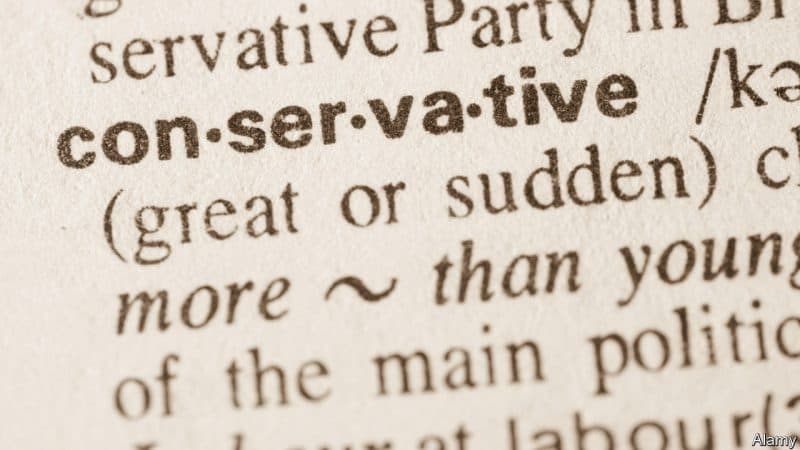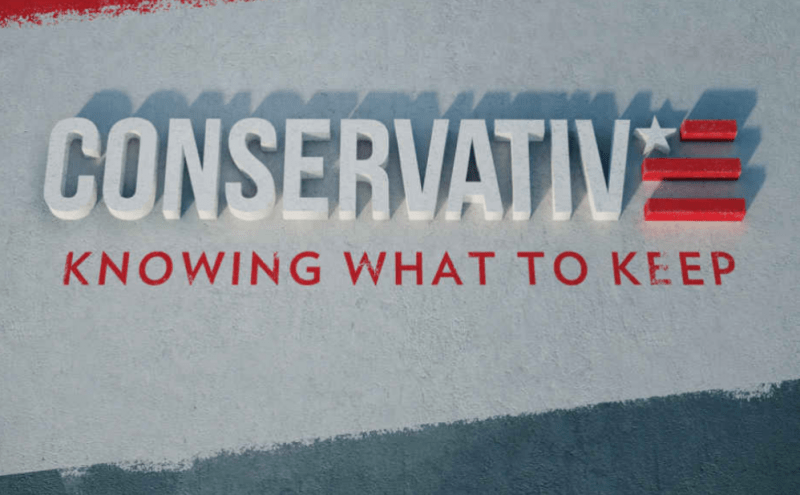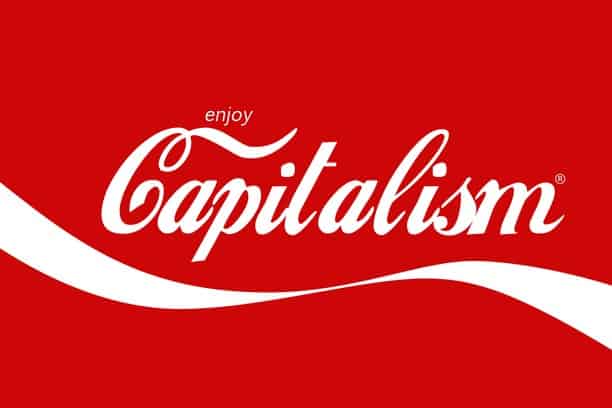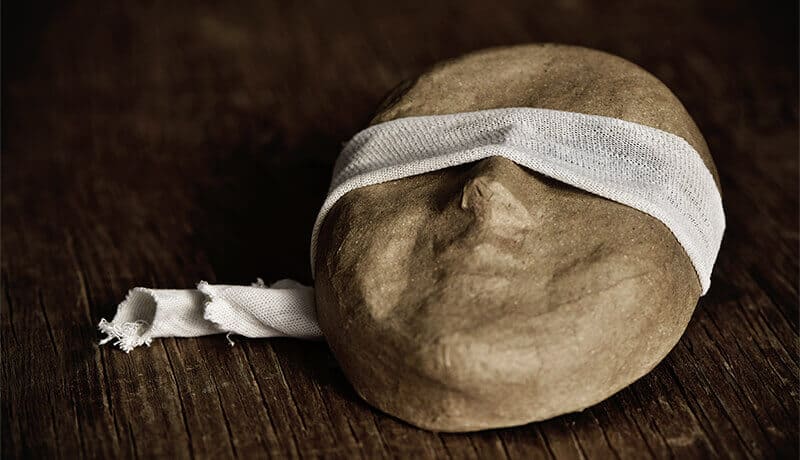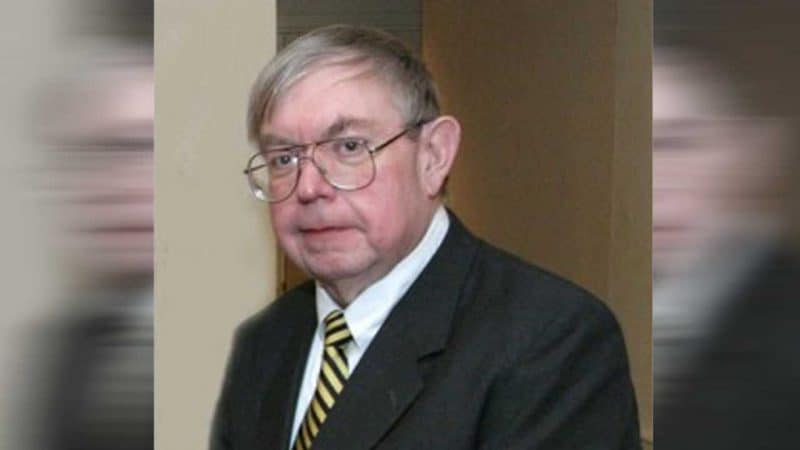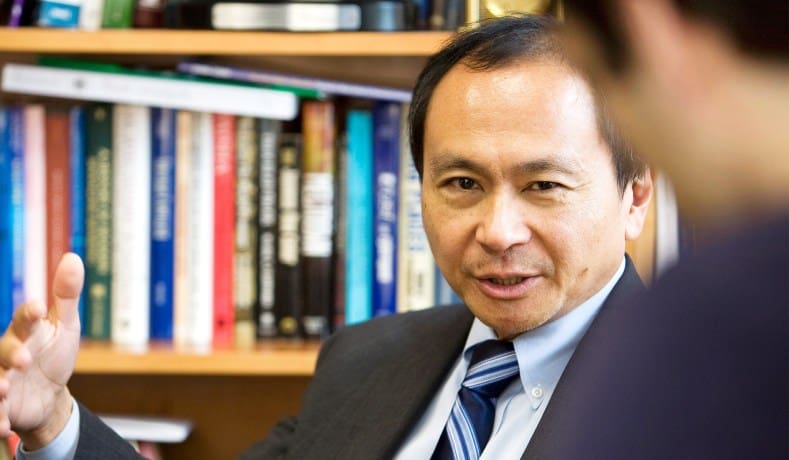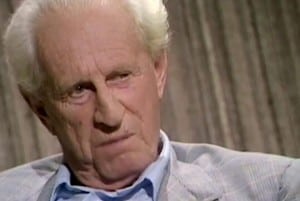Some theorists have argued that politics, especially democratic politics, creates a rupture in a more organic, “pre-political” society. This article looks at various aspects of this „rupture”, and possible approaches to healing it. One might well raise the issue of whether the central problem of the so-called „end of history” (or period of late modernity), is essentially „the death of politics”, or a (presumably) un-natural intensification of politics. On the one hand, it is possible to observe the socio-technical „resolution” of all human problems into […]
Kategoria: Filozofia polityczna
Wegierski: In search of a conservative sociology
One of the most salient points about the problems of meaning and ideology, made by (among others) George Orwell in his dystopian novel, Nineteen Eighty-Four, is that semantics, far from being unimportant, are critical for the maintenance of a given social and political system of ideas i.e., „Newspeak is Ingsoc, and Ingsoc is Newspeak.” The coherence or incoherence (in terms of definition), and positive or negative value (in terms of emotion), which are commonly associated with a term describing a political ideology, will tell one […]
Wegierski: Problems of Current-Day Conservative Thought
There is currently underway a big debate about the shape and future of conservatism in Canada. By looking to the debate about conservatism in America, we could draw some conclusions as to what a genuine conservatism should actually consist of. Conservatism today is, it could be argued, a bewildered philosophy -‑ an unwieldy morass of mutually incompatible, self‑contradictory, and amorphous ideas. Despite decades of internecine debate, the contemporary conservative movement in Western societies has failed, generally‑speaking, to provide a coherent and consistent account of itself. […]
Wegierski: Is Capitalism conservative?
Conservatism and capitalism are often equated today. The historical record, it could be argued, suggests a radically different view. Conservatism -‑ in the precise, historical, classical sense -‑ has not been defined by a defence of capitalism, civil libertarianism, „libertinism”, or the „minimal state”. „Capitalism” has never been a rallying cry for real conservatives. Indeed, classical conservatives were the first to provide a comprehensive critique of capitalism, that „great solvent of all tradition in the modern era”. Genuine conservatism requires strong (as distinct from big) […]
Wegierski: Resisting “soft-totalitarianism” in Canada?
Mark Wegierski examines the ethical challenges for sincerely-believing Christians of living in accord with their faith in current-day Canada. The idea of so-called “soft totalitarianism” has emerged from various dystopian novels and political writings of the Twentieth Century. In his dystopian novel Brave New World (1932), and a preface to it, Brave New World Re-visited (written after World War II), Aldous Huxley suggested a possible future society that would be mostly non-coercive, but at the same time embrace a thoroughgoing, totalitarian exclusion of traditional notions […]
Wegierski: A Poisoned Imagination? Examining the excess of “late modern” imageries in various subgenres of the fantastic
This article looks at so-called late modern societies – especially America and Canada – that, it could be argued, have become increasingly influenced by an excess of dark and disorienting imageries, especially in the various subgenres of the fantastic. Among the most prominent and absorbing of these subgenres are fantasy role-playing games (RPG’s) such as Dungeons and Dragons, launched in 1974. D & D arose from a convergence of interest in historical boardgaming, medieval miniatures gaming, and the huge popularity of Tolkien’s Lord of the […]
Wegierski: Prophets of rootedness: Sam Francis and Friedrich Nietzsche
In his eulogy for Sam Francis in the Middle American News, Jerry Woodruff tells of Sam’s profound interest in Friedrich Nietzsche. In his office, Sam kept a framed print of his favorite words from Nietzsche given to him by Woodruff. The quotation comes from Die Fröhliche Wissenschaft (“The Gay Science,” today more usually translated as “The Joyful Wisdom” section 283 of book four). Woodruff cites part of the passage, which, he writes, “might provide a fitting epitaph”: I welcome all signs that a more virile, […]
Wegierski: Fukuyama, thirty years after – some still unanswered philosophical questions
Initial drafts of this response to Fukuyama’s article go back to November 1989. Francis Fukuyama, „The End of History?” The National Interest no 16 (Summer 1989), pp. 3-18 and Alan Bloom, et al. „Responses to Fukuyama.” The National Interest no 16 (Summer 1989), pp. 19-35. Fukuyama’s article has caught the attention of many persons who study political philosophy, and who are deeply interested in questions of what might somewhat over‑optimistically be called „the future of the West”. Fukuyama’s article has been perceived as a daring […]
Wegierski: Earth Day 2019 – tradition and ecology
The happenstance that Easter Sunday and Earth Day fall within a day of each other in 2019, leads the author to attempt a sketch towards the synthetic nesting of ecological issues within notions of culture and tradition. What are some of the affinities between traditionalist and ecological thinking? The United States and Canada certainly participate today in the worldwide trends to technology (sci-tech); urbanization and migration; media; tribalism; and violence. Together, these might generally be seen as constituting the ongoing crisis of national sovereignty and […]
Wegierski: Herbert Marcuse vs. Aldous Huxley’s Brave New World — a thought experiment
Mark Wegierski speculates what Herbert Marcuse would say about the famous dystopia. The thought-experiment is a recognized form of obtaining certain insights, even in the strictest hard sciences. Aldous Huxley, who passed away fifty-five years ago, on November 22, 1963, would have probably appreciated laying out a hypothetical situation like the one below. Let us say that Herbert Marcuse, the Frankfurt School theorist, often considered as one of the intellectual progenitors of the Sixties’ revolutions, were re-awakened several hundred years hence, in the world of […]


